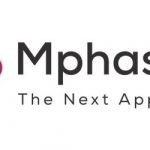When Can You Start Using Quantum Computing in the Cloud?

Only in recent years have quantum computers enjoyed a sudden surge in enterprise interest, stimulated by Google’s claim last year to have achieved “quantum supremacy”, alongside announcements from powerhouses like IBM and Microsoft.
researchers have begun to demonstrate real-world examples of how these early quantum computers could be put to use. In theory, quantum computers could one day lead to substantial advances in materials science, AI, medicine, finance, communications, and more.
The use of quantum computing by developers is to encode problems as qubits, which compute multiple combinations of variables at once rather than exploring each possibility discretely. In theory, this could allow researchers to quickly solve problems involving different combinations of variables, such as breaking encryption keys, testing the properties of different chemical compounds, or simulating different business models.
In layman’s terms, quantum computers are not intended to replace classical computers, they are expected to be a different tool we will use to solve complex problems that are beyond the capabilities of a classical computer. Basically, as we are entering a big data world in which the information we need to store grows, there is a need for more ones and zeros and transistors to process it. For the most part, classical computers are limited to doing one thing at a time, so the more complex the problem, the longer it takes.
In terms of quantum computing services in the cloud, providers have been rushing to outdo one another by launching quantum computing offerings in recent years. In 2019, Microsoft announced Azure Quantum, a general-purpose cloud service for deploying quantum applications. Amazon’s quantum computing arm, called Braket, became generally available in August this year. IBM, too, is making a major cloud quantum play with IBM Quantum Experience, which builds on the company’s investments in quantum research.
To date, there are two types of quantum cloud services solutions offered by vendors like Azure, Microsoft, and IBM, which is the use of software emulators to simulate a quantum computing environment and access to actual quantum hardware.
The first type of service, according to ITPro Today, won’t give you anything approaching quantum performance. The simulated quantum environments are hosted on conventional hardware, so your code will run only as fast as it would on a conventional machine.
The access to actual quantum hardware though is offered through partnerships with companies like IonQ and D-Wave, which develop quantum machines. Using cloud services like Bracket, Azure Quantum, and IBM Quantum Experience, you can rent access to real quantum computers through the cloud. Yet, the quantum cloud services provided in the market currently make it easy for anyone with a public cloud account to access quantum environments.
For easy access to production-ready quantum environments — we are probably at least a decade away.



















